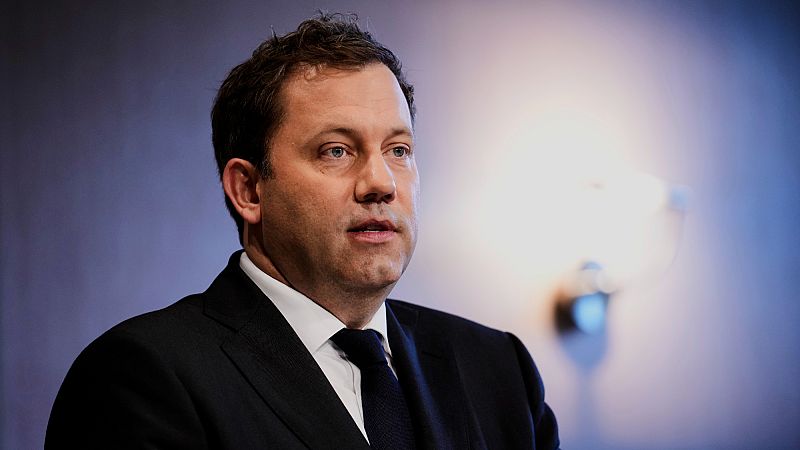EU Commission 'surprised' by German finance minister's jibe on trade deal

The European Commission said on Tuesday it was surprised by comments German Finance Minister Lars Klingbeil in which he highlighted the EU’s weakness in the ongoing tariff talks, despite Germany having been fully briefed ahead of the agreement reached on July 27 by Commission President Ursula von der Leyen and US President Donald Trump.
“It is most surprising to us,” Commission spokesperson Olof Gill said, adding: “Nothing has happened here in terms of the Commission’s approach, negotiation or outcome achieved without the clear signal received from our member states.”
Klingbeil said on Monday, ahead of his meeting with US Treasury Secretary Scott Besant in Washington DC, that EU representatives “have shown weakness” during trade negotiations with the US.
“Overall, as Europeans, we must become stronger," Klingbeil insisted, "then we can also stand up to the US with more self-confidence. Not against the US, but in dialogue with the US.”
Germany “had been fully briefed on the details of the agreement at a political level”, Commission Deputy Spokesperson Arianna Podestà added on Tuesday.
Negotiations continue
Since the announcement of the EU-US tariff agreement on July 27, the Commission has maintained that the deal represents the least bad option, allowing the EU to avoid a further escalation in the transatlantic trade dispute.
However, the details of the agreement are still under negotiation, just days after a US Executive Order set tariffs at 15%. Germany, in particular, continues to see its automotive industry heavily impacted by 25% US tariffs — contrary to the political deal, which aimed to reduce them to 15%.
Negotiations also continue on which products may be eligible for exemptions.
“We fight for every product and every industry,” a senior EU official said, adding: “We're really trying to get as many products into the list of exemptions.”
A joint EU-US statement is expected to be released soon, aiming to reinforce the political commitments made on both sides of the Atlantic.
Under the current framework, the US has agreed to apply a 15% tariff on EU goods, while the EU has committed to purchasing US energy and investing in the United States.
Today

